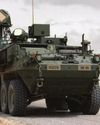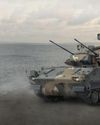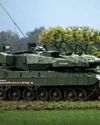
In any case, drawing the right lessons from 1962 is always a worthy exercise.
In 1962, China was not a great military power as it is today. But it still went for a war against India because of three principal reasons. First, there was that tremendous sense of Chinese insecurity in Tibet, particularly after the Dalai Lama crossed over to India and established the government-in-exile to internationalise the issue of China's illegal occupation of his land and be a rallying force for Tibetans' resistance against Beijing's rule inside Tibet. Obviously, China saw (and it continues to see) India as a troublesome factor behind the Tibetan unrest.
Secondly, the war against India was a diversionary strategy on the part of the then Chinese supremo Mao Zedong, whose politico economic policy of "The Great Leap Forward" was proving to be a disaster for the Chinese people, thus strengthening his opponents in the Chinese Communist Party such as Liu Shaoqi and Deng Xiaoping. Wars, after all, unite the countrymen like nothing else and if the country comes out victorious, then it strengthens the position of the leader like never before.
Thirdly, despite China being a communist country, Mao (and all his successors so far) never gave up the nation's past culture in which the concept of "Middle Kingdom" (that China is the centre of global civilisation and all the nations must acknowledge its political and cultural supremacy by paying tributes) is deeply ingrained. That means China will not allow any other nation, at least in Asia, to be as important as it is. Obviously, Mao did not like the global attention and importance that India's then Prime Minister Jawaharlal Nehru was drawing at that time. He had to show Nehru that China was a great power and, for this reason, had to 'punish' India once".
Esta historia es de la edición January 2023 de Geopolitics.
Comience su prueba gratuita de Magzter GOLD de 7 días para acceder a miles de historias premium seleccionadas y a más de 9,000 revistas y periódicos.
Ya eres suscriptor ? Conectar
Esta historia es de la edición January 2023 de Geopolitics.
Comience su prueba gratuita de Magzter GOLD de 7 días para acceder a miles de historias premium seleccionadas y a más de 9,000 revistas y periódicos.
Ya eres suscriptor? Conectar

THE RISE OF UGVs REVOLUTIONISING TACTICAL AND STRATEGIC MILITARY OPERATIONS
MANOJ K CHANNAN explains the history of UGVs, their role in modern warfare, their integration with advanced technologies, and their broader implications for military operations, intelligence assessments, and human-machine collaboration

INNOVATIONS AND ADVANCEMENTS IN DEFENCE TECHNOLOGY BY MKU
The defence industry is evolving rapidly to address the dynamic challenges of modern warfare, and MKU is at the forefront of this transformation. In an exclusive interaction, VAIBHAV GUPTA, Director India Business of MKU highlights their innovative approaches, spanning advanced ballistic protection, cutting-edge night vision and thermal imaging technologies, and strategic partnerships to enhance India's defence capabilities. From pioneering protective solutions for soldiers to leveraging indigenous technological breakthroughs, MKU continues to redefine the benchmarks of excellence in defence technology.

INDIA'S STRYKER CHOICE
India's selection of the US-made Stryker armored vehicle over the indigenous WhAP sparks debates on prioritiSing swift acquisitions and combat readiness versus commitment to self-

HANWHA AEROSPACE DEEPENS INDIA DEFENSE TIES AMID REGIONAL TECH RACE
Amid growing regional competition in defence technology, a prominent defence initiative is strengthening ties with India through successful artillery and air defence programs. This collaboration aligns with India's strategic focus on bolstering domestic defence manufacturing and reducing reliance on imports. By fostering advanced technology transfer and enhancing local production capabilities, the partnership is poised to transform the defence landscape in Asia, showcasing significant achievements in artillery systems, air defence solutions, and aerospace innovation

ADVANCING INDIA'S DEFENCE CAPABILITIES
Larsen & Toubro (L&T) is advancing India’s defence ecosystem with ground breaking innovations, including next-generation combat platforms, autonomous technologies, and cutting-edge systems, underscoring its commitment to India’s military modernisation, highlights ARUN RAMCHANDANI, SVP & Head – L&T Precision Engineering and Systems IC

NEED FOR A LARGER ARTILLERY FORCE
At a time when India is increasingly facing a multi-front challenge on her borders, it is quite evident that the Indian artillery modernisation programme needs a massive thrust from the government, argues JYOTI SINGH

FORCE PROTECTION
The Indian Army faces an urgent need to equip Main Battle Tanks and Armoured Fighting Vehicles with advanced Active Protection Systems to counter modern threats and enhance battlefield survivability. The lack of such systems could be addressed with the combat-proven Trophy APS, writes ATUL CHANDRA

THE INDIAN ARMY AND DRONES
AMIT GUPTA argues why the induction of Drones, which have changed the face of modern warfare, into the Indian Army needs to be in greater numbers

TECHNOLOGICAL SYNERGY REDEFINED: IAI'S COMMITMENT TO INDIA-ISRAEL INNOVATION
BRIG. GEN. (RES) EYTAN ESHEL, Executive Vice President of Technology, Chief Technology Officer (CTO), R&D and Innovation of IAI, highlights how nearly 40 years of India-Israel collaboration has fostered innovation, leveraging India's deep-tech talent for global aerospace and defence advancements while promoting sustainability and co-developing solutions with Indian startups and institutions.

INDIA EMBARKS ON DECADE-LONG PROJECT TO DEVELOP FUTURE-READY COMBAT VEHICLE
With a substantial portion of its borders shared with neighbouring countries, it is essential for India to have modern and robust tanks for both defensive and offensive operations. In this regard, the FRCV's advanced capabilities allow it to face changing ground obstacles like land and air threats. It will provide a decisive advantage in future conflicts and enhance operational effectiveness through its integration with air power, writes JOSEPH P CHACKO